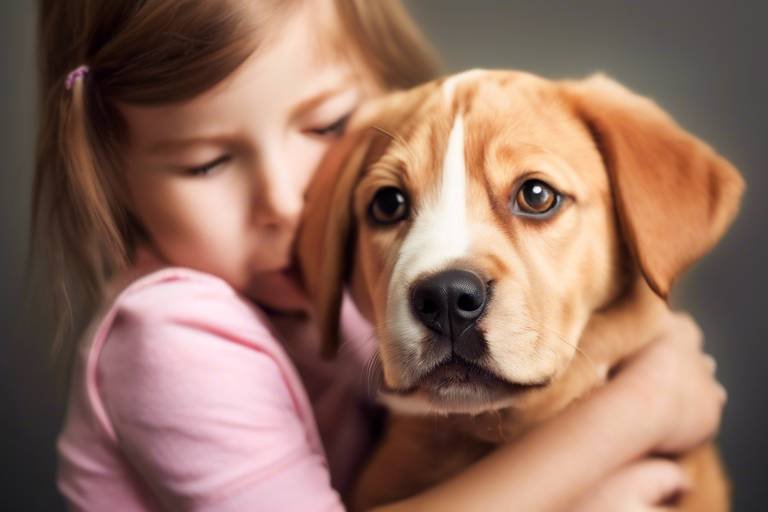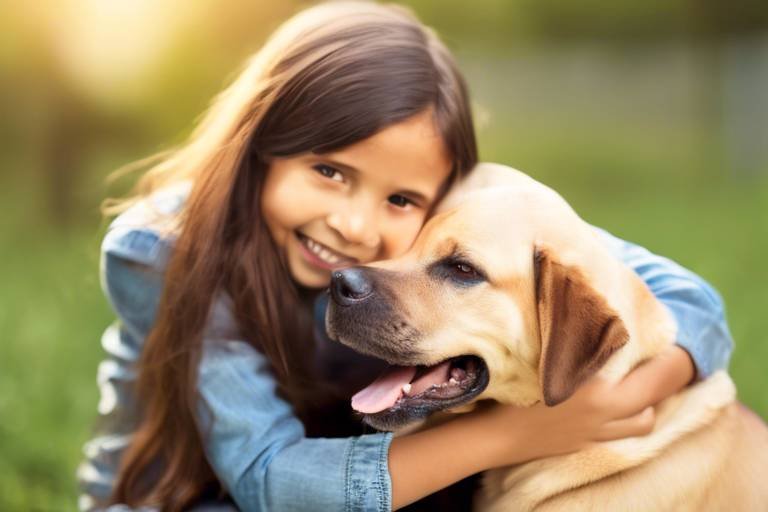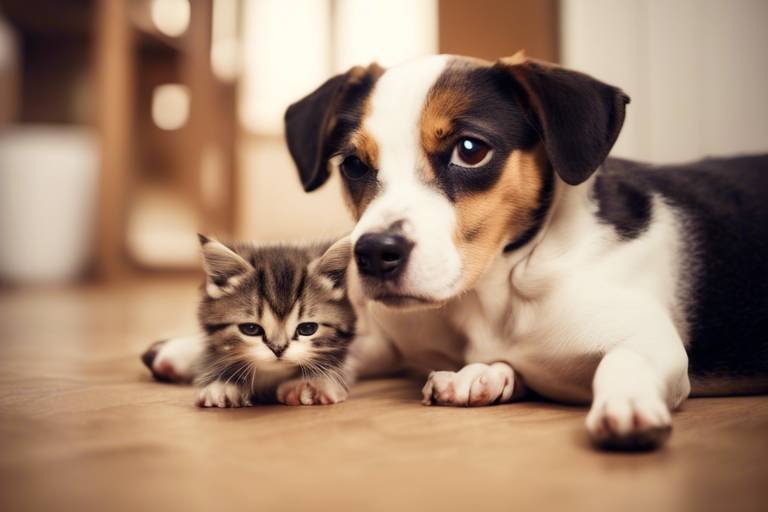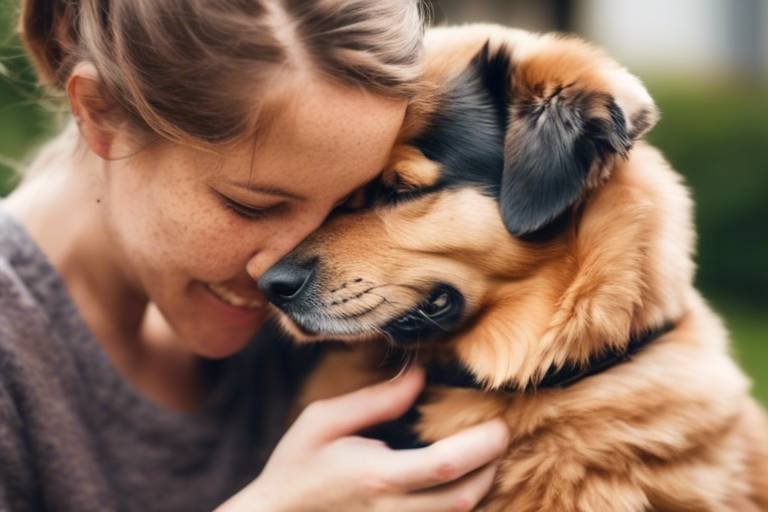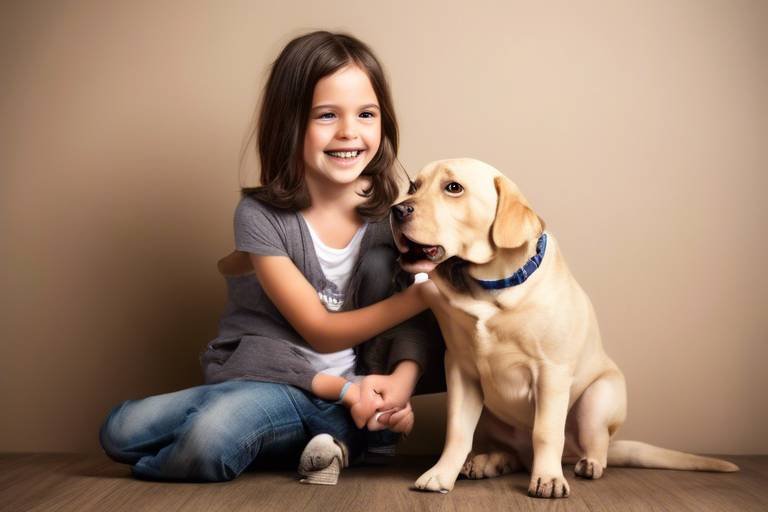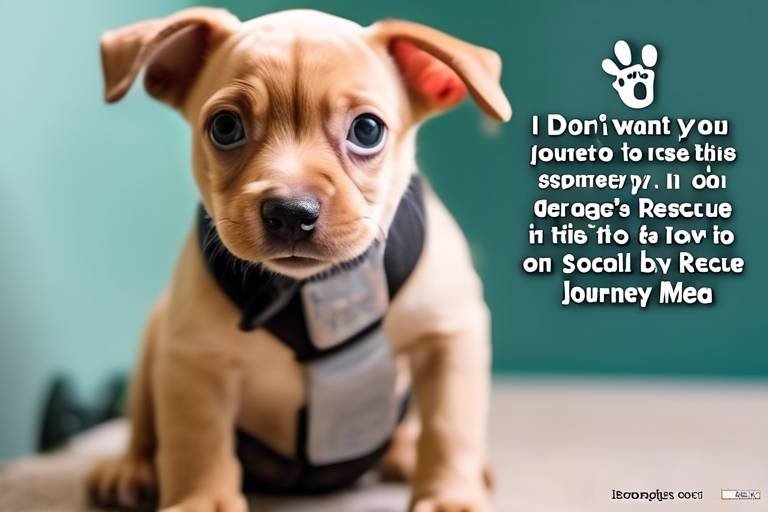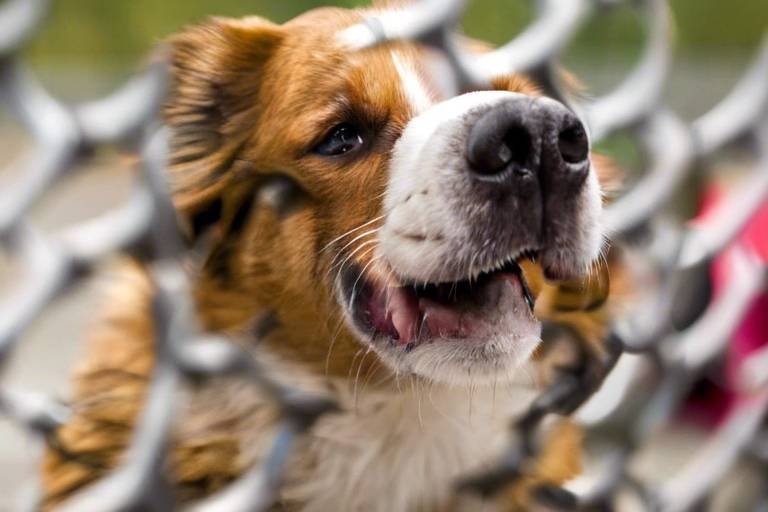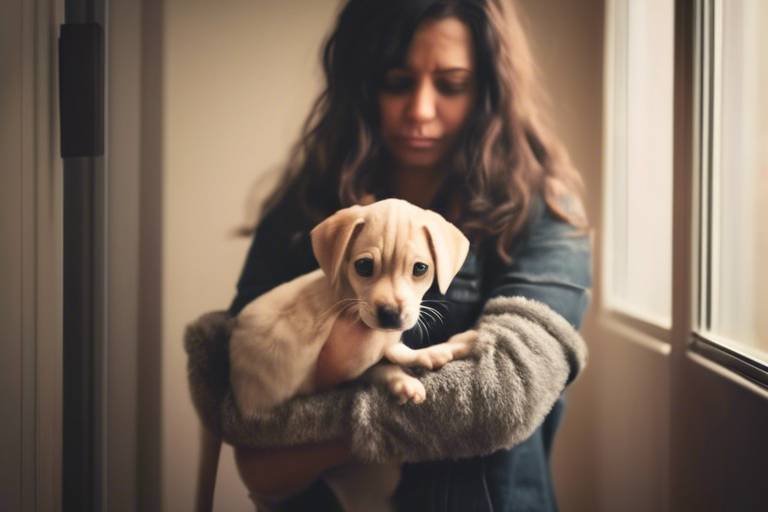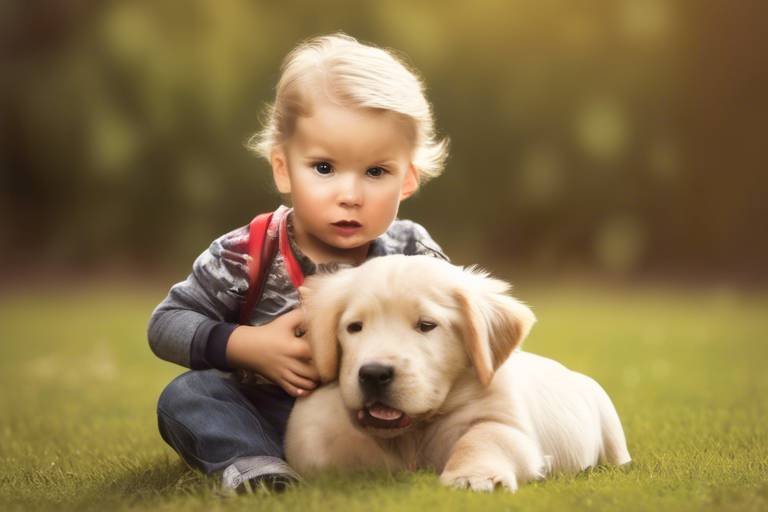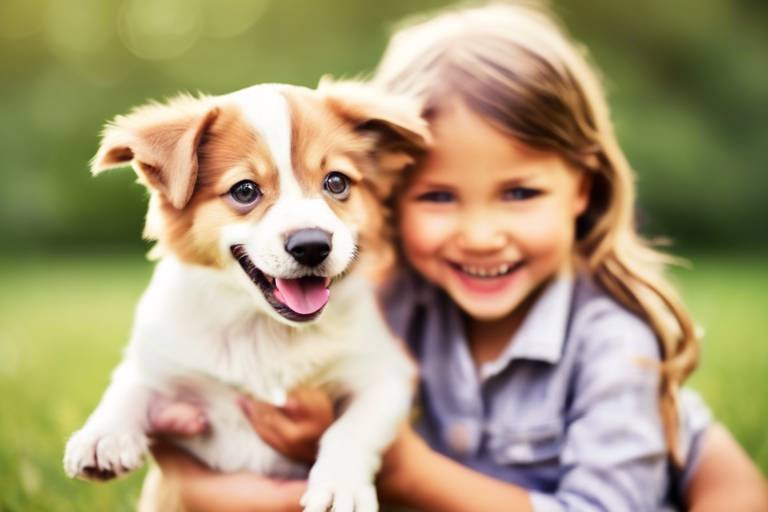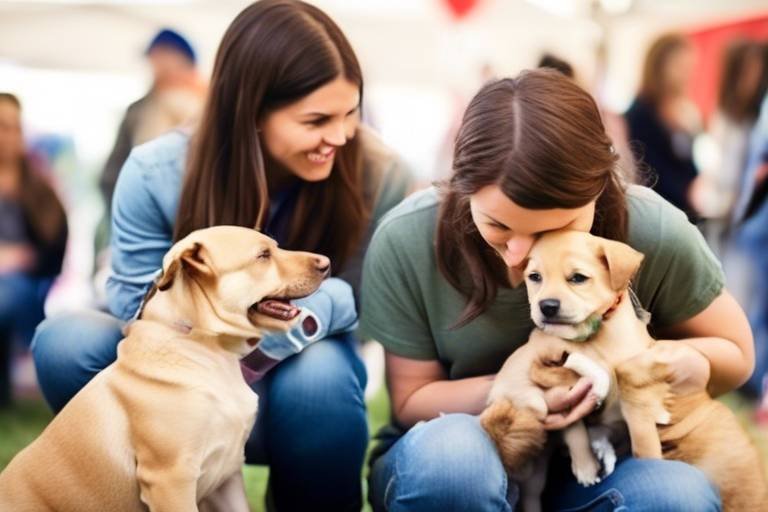How to Choose the Right Pet Adoption Organization
Choosing the right pet adoption organization is a pivotal step in your journey to finding a furry companion. It’s not just about picking a cute face; it’s about ensuring that both you and your future pet have a fulfilling experience. Imagine walking into your home, and there’s your new best friend, tail wagging and ready to snuggle. But before that dream becomes a reality, you need to do your homework. The right organization can make all the difference in ensuring that your adoption process is smooth, rewarding, and filled with joy.
First things first, let's understand what pet adoption organizations are all about. They come in various forms, each with its unique mission and approach. You might encounter local animal shelters, dedicated rescue groups, or even breed-specific organizations. Each of these plays a crucial role in the welfare of animals, but they operate differently. For instance, shelters often take in a variety of animals from the community, while rescues may focus on specific breeds or types of pets. Understanding these differences will help you align your expectations with what each organization offers.
Next, you’ll want to dive into some research. In today’s digital age, finding local adoption organizations is easier than ever. A quick online search can yield a treasure trove of options, but don’t stop there! Reach out to your community—friends, family, and social media groups can provide invaluable recommendations. You might even discover hidden gems that aren’t as well-known but have a stellar reputation for their care and commitment to animals. And remember, visiting these facilities in person can give you a real sense of their environment and practices.
As you sift through your options, evaluating the reputation and credibility of these organizations is vital. Look for reviews and testimonials from previous adopters. A reputable organization should have a track record of happy pet owners and healthy, well-cared-for animals. Additionally, affiliations with recognized animal welfare groups can serve as a badge of honor, signaling that the organization adheres to high standards of care and ethics.
Attending adoption events can be a game-changer. Not only do these events allow you to meet animals in need of homes, but they also provide an opportunity to interact directly with organization representatives. You can ask questions, learn about the animals’ stories, and see firsthand how the organization operates. It’s like speed dating for pets! You might just find that perfect match while enjoying a fun day out.
When it comes to animal care standards, you want to be thorough. Look for signs of a well-organized operation: health checks, vaccinations, and clean living conditions are all indicators that the organization prioritizes the well-being of their animals. Don't hesitate to ask about their protocols and practices; a transparent organization will be more than willing to share this information with you.
Understanding the adoption policies is equally crucial. Each organization may have different fees, application processes, and post-adoption support systems in place. Make sure you’re clear on what to expect, as this can significantly impact your experience. A smooth transition for your new pet often hinges on how well you understand these policies before making the leap.
Asking the right questions can illuminate a lot about an organization’s operations and their commitment to animal welfare. Here are a few key questions to consider:
- What is the adoption fee, and what does it cover?
- Can you tell me about the animal's history and behavior?
- What kind of support do you offer after adoption?
- How do you ensure the animals are healthy and well-cared-for?
Finally, it’s essential to reflect on your lifestyle and needs. Are you looking for a high-energy dog to join you on your runs, or a calm cat to curl up with you on the couch? The right organization can help match you with an animal that fits your lifestyle, ensuring a harmonious relationship. Think about your living situation, work schedule, and family dynamics. This self-reflection can guide you in making a choice that benefits both you and your future pet.
In conclusion, making the final decision about which pet adoption organization to go with can feel overwhelming, but it doesn’t have to be. By following these tips and being proactive in your research, you can confidently choose an organization that aligns with your values and meets your needs. Remember, this is not just about finding any pet; it’s about creating a lasting bond with a companion who will fill your life with love and joy.
Q: How can I find local pet adoption organizations?
A: You can search online, ask for recommendations from friends, and check local community boards or social media groups.
Q: What should I look for in an adoption organization?
A: Look for transparency in practices, positive reviews, and a commitment to animal welfare.
Q: Are there fees associated with pet adoption?
A: Yes, most organizations charge an adoption fee that often covers vaccinations and spaying/neutering.
Q: What questions should I ask during the adoption process?
A: Inquire about the animal’s history, health, and the support the organization offers post-adoption.
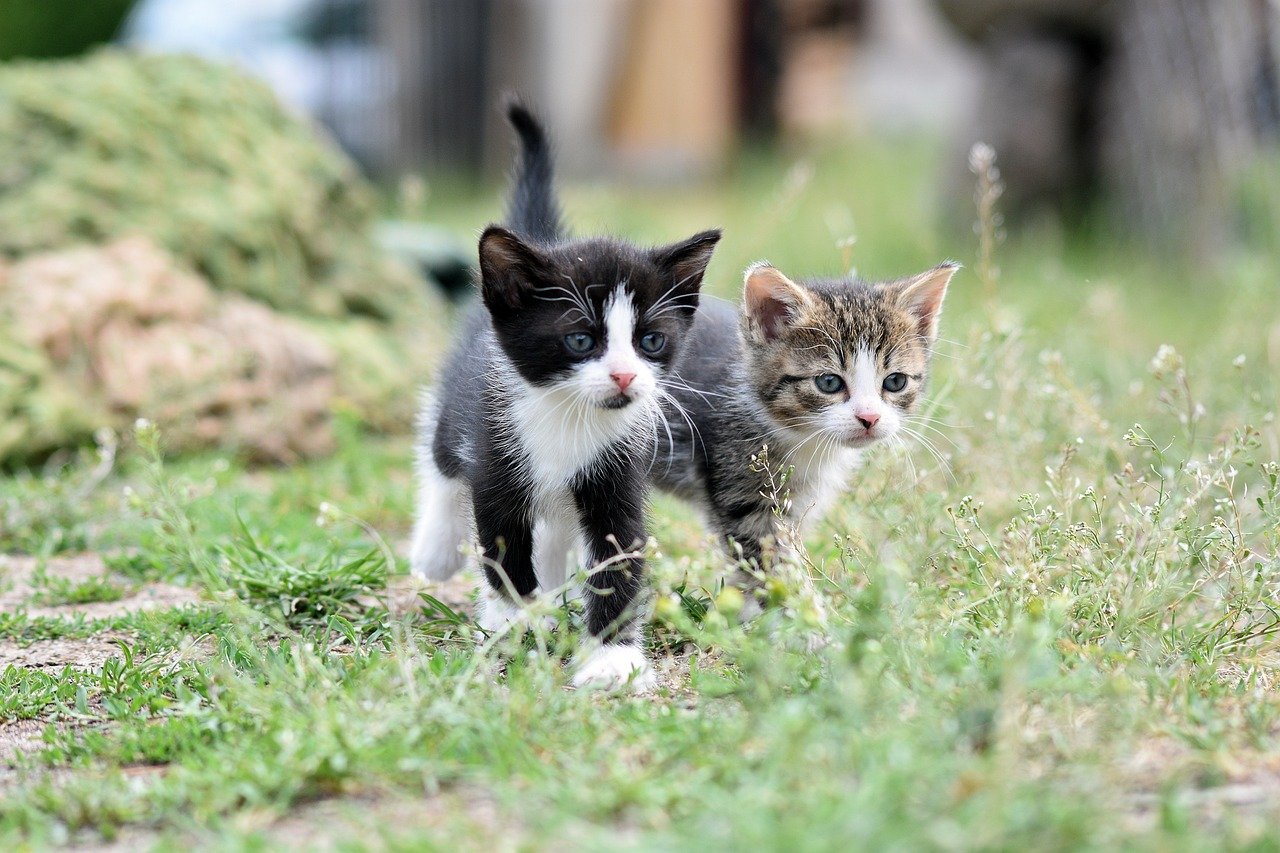
Understanding Pet Adoption Organizations
When it comes to bringing a furry friend into your home, understanding the landscape of pet adoption organizations is crucial. These organizations play a vital role in rescuing animals and finding them loving homes. However, not all adoption organizations are created equal, and knowing the differences can make a world of difference in your adoption experience.
There are primarily three types of pet adoption organizations: shelters, rescue groups, and breed-specific organizations. Each type has its own unique approach to animal care and adoption:
- Shelters: These are typically government-funded facilities that take in stray, abandoned, or surrendered animals. Shelters often have a high turnover rate, meaning animals might only stay for a short period before being adopted or, unfortunately, euthanized if they are not adopted in time.
- Rescue Groups: These are usually non-profit organizations run by volunteers. They often focus on specific breeds or types of animals and work to rescue them from high-kill shelters or dire situations. Rescue groups tend to have a more personalized approach, often fostering animals in homes until they find a permanent family.
- Breed-Specific Organizations: If you have your heart set on a particular breed, breed-specific rescues can be a great option. These organizations specialize in specific breeds, ensuring that the animals they adopt out have the best possible match for their breed's needs and characteristics.
Understanding these distinctions not only helps you find the right organization but also ensures that you are supporting practices that align with your values. For instance, if you prefer to rescue a dog from a high-kill shelter, you might lean towards a shelter rather than a breed-specific organization. On the other hand, if you are looking for a specific breed, a breed-specific rescue would be the way to go.
Moreover, many organizations have unique missions and philosophies. Some may focus on rehabilitation and training, while others prioritize spaying and neutering to control the pet population. It’s essential to align your choice of organization with your personal beliefs about animal welfare. For example, if you believe in the importance of spaying and neutering pets to prevent overpopulation, look for organizations that emphasize this in their practices.
In addition to the types of organizations, consider their operational practices. A reputable organization should be transparent about their processes, including how they handle animal care, adoption procedures, and post-adoption support. This transparency builds trust and ensures that you are making a responsible choice for both you and your future pet.
In summary, understanding the various types of pet adoption organizations and their specific missions can significantly impact your adoption journey. By doing your homework and choosing an organization that resonates with your values and lifestyle, you set the stage for a rewarding experience that benefits both you and your new furry friend.

Researching Local Options
When it comes to finding the perfect furry companion, the first step is to dive into the world of local pet adoption organizations. You might be wondering, "How do I even start?" Well, fear not! Researching local options is easier than you think, and it can be quite fun too! Begin your search by utilizing online resources, which are abundant and can provide a wealth of information at your fingertips. Websites like Petfinder and Adopt-a-Pet allow you to search for adoptable animals based on your location, breed preferences, and other criteria. This way, you can get a sense of what's available in your area before making any decisions.
But don't stop there! Community recommendations can be a goldmine of information. Ask your friends, family, or coworkers if they have any experiences with local shelters or rescue groups. Often, personal stories can shed light on the best organizations, giving you insights that you won't find online. Plus, who doesn't love a good pet adoption success story? It's like a warm hug for your heart!
Another essential step is to visit the facilities in person. There's something incredibly powerful about seeing the environment where the animals are cared for. When you walk through the doors of a shelter or rescue, take a moment to observe the conditions of the animals. Are they well-groomed? Do they appear happy and healthy? A clean, welcoming environment is a strong indicator of a reputable organization. You might even get the chance to interact with some of the pets, which can help you gauge which animal might be the right fit for you.
To make your research even more effective, consider creating a comparison table to keep track of the organizations you’re interested in. Here’s a simple outline to get you started:
| Organization Name | Location | Website | Notes |
|---|---|---|---|
| Happy Paws Shelter | Downtown | happypawsshelter.com | Great reviews, clean facility |
| Furry Friends Rescue | Uptown | furryfriendsrescue.org | Specializes in cats |
| Breed Specific Rescue | Suburb | breedrescue.org | Focus on specific breeds |
By keeping track of these details, you’ll be able to make informed comparisons between different organizations. Remember, the goal is to find a place that aligns with your values and offers the best care for the animals. The more you research, the more confident you'll feel in your choice!
In summary, researching local pet adoption organizations is an exciting journey filled with potential. Utilize online resources, tap into your community for recommendations, and take the time to visit the facilities. With these strategies in your back pocket, you're well on your way to finding a wonderful organization that will help you welcome a new furry friend into your life.
- What should I look for in a pet adoption organization? Look for cleanliness, animal care standards, and positive reviews from previous adopters.
- How can I find local adoption events? Check local shelters' websites or social media pages for announcements about upcoming events.
- Are there fees associated with adopting a pet? Yes, most organizations have adoption fees that cover vaccinations, spaying/neutering, and other care costs.
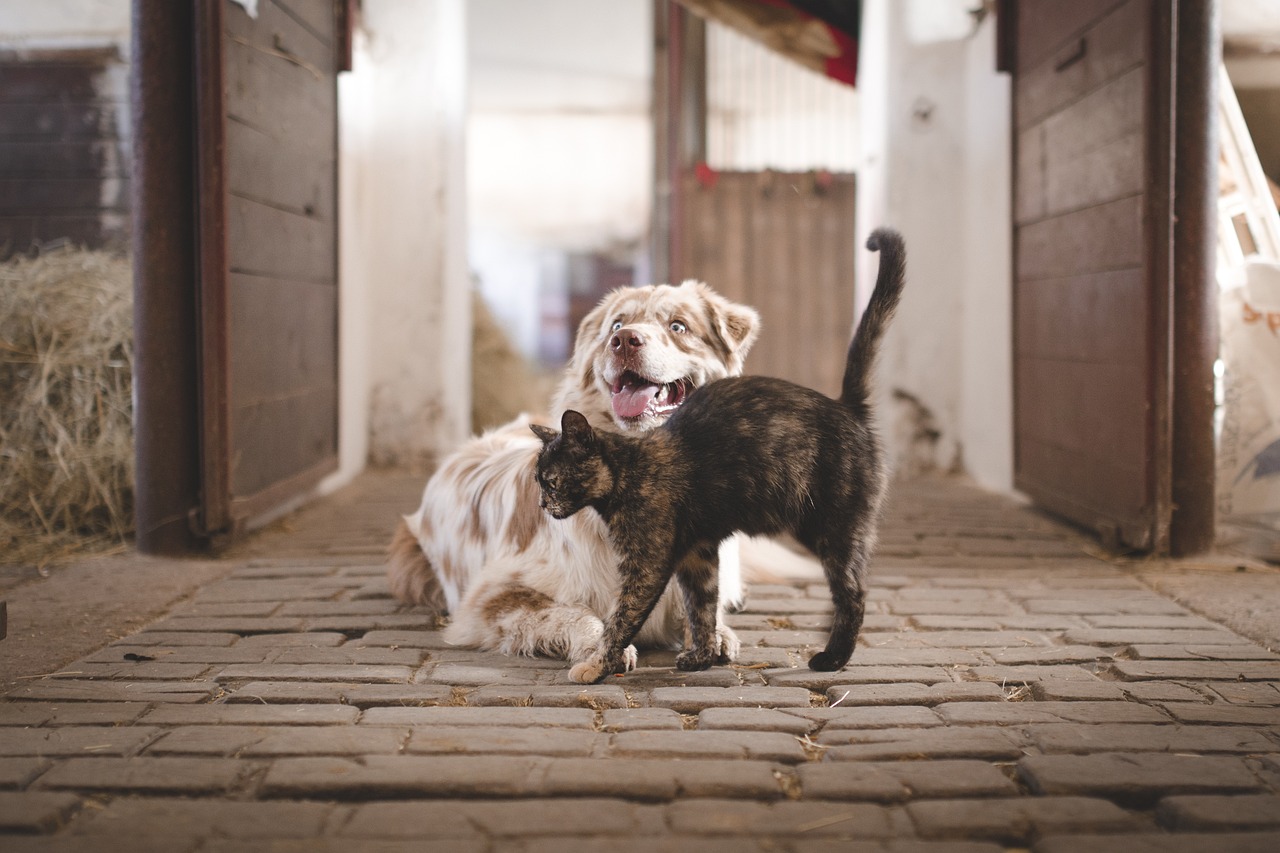
Evaluating Reputation and Credibility
When it comes to choosing a pet adoption organization, one of the most critical steps is evaluating their reputation and credibility. After all, you want to ensure that the organization you choose is genuinely committed to the welfare of animals and not just in it for profit. Start by diving into online reviews and testimonials from previous adopters. Websites like Google Reviews, Yelp, and even social media platforms can provide valuable insights into the experiences of others. Look for patterns—if many people rave about the care their pets received, that’s a good sign!
Furthermore, consider the organization’s affiliations with recognized animal welfare groups. Many reputable organizations are members of national or regional animal welfare associations, which often have strict standards for membership. This can be a great indicator of their credibility. For example, organizations that are part of the ASPCA or Humane Society typically adhere to higher ethical standards. You can often find this information on their websites or by asking directly during your interactions.
Another effective way to gauge an organization's reputation is to reach out to your community. Talk to friends, family, or coworkers who have adopted pets. Their personal experiences can provide a wealth of information and perhaps even lead you to the best local organizations. Additionally, consider visiting local veterinary clinics or pet supply stores, as they often have connections with reputable adoption groups and may offer recommendations.
While online research is essential, nothing beats the firsthand experience of visiting the organization. Take a tour of their facilities if possible. Observe how the staff interacts with the animals and whether the environment appears clean and welcoming. This can give you a sense of how much they care about the animals in their charge. Trust your instincts—if something feels off, it might be worth exploring other options.
In summary, evaluating the reputation and credibility of pet adoption organizations involves a combination of online research, community input, and personal visits. By taking these steps, you can ensure that you’re partnering with an organization that prioritizes the well-being of animals, making your adoption experience both fulfilling and responsible.
- What should I look for in reviews of pet adoption organizations? Look for consistent praise regarding animal care, transparency, and the adoption process.
- How can I verify an organization's affiliations? Check their website for membership logos or contact them directly to ask about their affiliations.
- Is it important to visit the organization in person? Yes, visiting allows you to assess the environment and care standards firsthand.

Visiting Adoption Events
Visiting adoption events can be one of the most exciting and rewarding experiences on your journey to finding a new furry friend. These events are often bustling with energy, filled with adorable pets looking for their forever homes and passionate volunteers eager to share their stories. Imagine walking into a lively park or community center, where the air is filled with the sounds of playful barks and meows, and the sight of wagging tails and curious kittens captures your heart. But how do you make the most of these events to ensure you find the right pet for you?
First, attending adoption events gives you the unique opportunity to meet animals in person. Unlike browsing through online profiles, you can interact with pets, see their personalities firsthand, and even take them for a short walk or cuddle session. This direct interaction can help you gauge whether a particular animal might be a good fit for your lifestyle. For example, a dog that seems playful and energetic at the event might be the perfect match for an active family, while a more laid-back cat could suit someone looking for a quieter companion.
Moreover, these events often feature a variety of organizations showcasing their adoptable pets. This means you can explore different breeds, ages, and temperaments all in one place. You may find yourself drawn to a particular type of animal or even discover a breed you hadn’t considered before. It’s like a mini pet fair, where each corner holds a new possibility and every pet has a story waiting to be told.
When you attend an adoption event, don’t hesitate to ask questions. Representatives from the adoption organizations are usually present to provide insights about the animals, their backgrounds, and any specific needs they may have. You might want to inquire about:
- Health history and vaccinations
- Behavioral traits and quirks
- Any special care requirements
- The pet's history and how they ended up in the organization
These conversations can be incredibly enlightening and help you make a more informed decision about which pet might be the best fit for your home. Additionally, many organizations will have adoption applications available at the event, allowing you to take the first step toward welcoming a new member into your family right then and there!
Lastly, attending these events not only helps you find a pet but also supports the cause of animal adoption. By participating, you're raising awareness about the importance of adopting rather than shopping for pets. You’re joining a community of animal lovers who share your passion for giving these animals a second chance at life. So, grab your family or friends, and head to the next adoption event in your area. Who knows? You might just meet your new best friend!
Q: What should I bring to an adoption event?
A: It's a good idea to bring a valid ID, any necessary paperwork for adoption, and perhaps a list of questions you want to ask. If you have other pets at home, consider bringing their vaccination records, as some organizations may require them during the adoption process.
Q: Can I adopt a pet on the spot?
A: Many organizations allow on-the-spot adoptions, but some may require a home visit or additional paperwork. It's best to check with the organization beforehand to understand their specific policies.
Q: Are there fees associated with adoption events?
A: Yes, most organizations charge an adoption fee that typically covers vaccinations, spaying/neutering, and sometimes even microchipping. These fees help cover the costs of caring for the animals while they await their new homes.
Q: What if I fall in love with a pet but can't adopt immediately?
A: If you find a pet you adore but aren’t ready to adopt, ask the organization if they have a hold policy. Some may allow you to place a temporary hold on the animal while you finalize your decision.

Assessing Animal Care Standards
When it comes to adopting a furry friend, one of the most crucial aspects to consider is the animal care standards upheld by the adoption organization. After all, you want to ensure that your future pet has been treated with the utmost care and compassion before they find their forever home. So, how do you assess these standards? It’s not just about a quick glance; it requires a deeper dive into the practices and environments of the organization.
First off, start by looking for signs of health checks. A reputable organization should perform regular health assessments on their animals. This includes vaccinations, spaying or neutering, and any necessary medical treatments. Ask the organization about their veterinary partnerships and how often the animals are examined. A well-organized facility will often have a health record for each animal, detailing their medical history and any treatments they’ve received.
Next, pay attention to the living conditions of the animals. Are they kept in clean, spacious environments? Do they have access to fresh water and proper nutrition? When you visit the facility, take note of how the animals are housed. Cramped, dirty cages are a red flag. Ideally, you want to see animals in a space that allows them to socialize, play, and feel safe. This is essential for their mental and emotional well-being.
Another important factor to consider is the staff-to-animal ratio. A lower ratio often means that each animal receives more attention and care. Ask the staff about their daily routines and how they ensure that each animal gets adequate socialization and exercise. A dedicated team that is passionate about animal welfare is a good sign that the organization prioritizes the well-being of its animals.
Furthermore, inquire about the organization’s adoption process. A thorough adoption process typically involves an interview, home visit, or follow-up checks. This shows that the organization is committed to ensuring that animals are placed in suitable homes. They should also provide you with guidance on how to care for your new pet, demonstrating their commitment to post-adoption support.
To give you a clearer picture, here’s a simple table summarizing key aspects to evaluate when assessing animal care standards:
| Aspect | What to Look For |
|---|---|
| Health Checks | Regular veterinary visits, vaccination records |
| Living Conditions | Clean, spacious environments with proper nutrition |
| Staff-to-Animal Ratio | Low ratio for more personalized care |
| Adoption Process | Thorough interviews, home checks, post-adoption support |
By keeping these factors in mind, you’ll be better equipped to choose an organization that truly cares about the animals in their custody. Remember, a responsible pet adoption organization will be transparent about their practices and eager to answer any questions you may have. After all, you’re not just adopting a pet; you’re becoming part of a community that values animal welfare!
- What should I ask during my visit to the adoption organization? Inquire about health checks, living conditions, and the staff's experience with the animals.
- How can I tell if an organization is reputable? Look for positive reviews, affiliations with recognized animal welfare groups, and transparency in their processes.
- What if I notice poor conditions at an organization? It’s important to report these findings to local animal welfare authorities to ensure the safety of the animals.

Understanding Adoption Policies
When it comes to adopting a furry friend, understanding the adoption policies of various organizations is crucial. These policies can vary significantly between shelters, rescues, and breed-specific groups, and knowing what to expect can make the adoption process smoother and more enjoyable. First and foremost, you should be aware of the adoption fees. Many organizations charge fees that help cover the costs of caring for the animals, including vaccinations, spaying or neutering, and general health checks. It's important to understand what these fees include, as they can range from nominal amounts to higher fees for purebred animals.
Next, the application process is another key aspect to consider. Most organizations will require you to fill out an application form, which often includes questions about your living situation, previous pet ownership experience, and your lifestyle. This helps the organization assess whether you're a good match for the pet you're interested in. Some places may even conduct home visits or interviews to ensure that the environment is suitable for the animal. This might sound daunting, but remember, it’s all about ensuring the well-being of the pets.
Another important element is post-adoption support. Many organizations offer resources to help you acclimate your new pet into your home. This could include training tips, behavioral advice, or even follow-up calls to check on how you and your new companion are adjusting. Understanding what kind of support is available can ease the transition for both you and your pet, making it a more fulfilling experience.
It's also wise to inquire about the return policy. Life can be unpredictable, and sometimes circumstances change. Knowing the organization's policy on returning an adopted pet can provide peace of mind. Some organizations may allow you to return the pet within a certain timeframe if things don't work out, while others may have stricter policies. Make sure to clarify this to avoid any surprises later on.
Lastly, familiarize yourself with any specific requirements the organization may have. For example, some might only adopt out pets to individuals or families with a certain level of experience, while others might require proof of home ownership or landlord approval if you're renting. Here’s a quick rundown of common adoption requirements:
- Age restrictions (e.g., must be 21 or older)
- Home ownership or landlord approval
- Previous pet ownership experience
- Financial stability to care for a pet
In conclusion, understanding the adoption policies of the organization you choose is essential for ensuring a smooth transition for both you and your new pet. By being informed and prepared, you can create a loving and supportive environment for your furry companion, leading to a happy and fulfilling relationship. So, take the time to review these policies, ask questions, and don’t hesitate to seek clarification on anything that seems unclear. Your future pet will thank you!
Q: What are typical adoption fees?
A: Adoption fees can vary widely, but they generally range from $50 to $300, depending on the organization and the animal's age or breed.
Q: How long does the adoption process take?
A: The adoption process can take anywhere from a few days to a couple of weeks, depending on the organization's policies and your responsiveness to their requests.
Q: Can I return my adopted pet if things don’t work out?
A: Many organizations have return policies, but it's essential to clarify the specific terms with the organization before adopting.
Q: What kind of support can I expect after adoption?
A: Post-adoption support varies by organization but may include training resources, behavioral advice, and follow-up calls.

Questions to Ask Adoption Organizations
When you're on the journey to adopt a furry friend, asking the right questions can make a world of difference. It's like going on a first date; you want to know if you're compatible! So, what should you be asking these organizations to ensure you're making the best choice for both you and your future pet? Here are some essential questions to guide your conversation:
1. What is the adoption process like? Understanding the steps involved in adopting a pet is crucial. Some organizations may have lengthy applications, while others might be more straightforward. Knowing what to expect can help you prepare and avoid any surprises.
2. What is included in the adoption fee? Adoption fees can vary significantly between organizations. Make sure to ask what the fee covers. Does it include vaccinations, spaying/neutering, or microchipping? This information can help you assess the overall value of adopting from that organization.
3. Can I meet the pet before adopting? Meeting your potential new family member is vital. It’s your chance to gauge the animal's personality and see if there’s a connection. A reputable organization will usually encourage this interaction.
4. What is the pet's medical history? Knowing your pet’s health background is essential for their future care. Ask about vaccinations, any past illnesses, and any ongoing treatments. This can provide you with peace of mind and help you prepare for any future medical needs.
5. What kind of support do you offer after adoption? The transition to a new home can be challenging for both pets and owners. Inquire about the support services the organization provides after adoption. Do they offer training resources, behavioral advice, or even a hotline for questions? This support can be invaluable as you settle into your new life together.
6. How do you assess the animals' behavior? Understanding how the organization evaluates its animals can give you insight into their care practices. Ask about the temperament testing they conduct and how they determine which pets are a good fit for various households.
These questions will not only help you gather important information but also demonstrate your commitment to providing a loving home. Remember, adopting a pet is a significant responsibility, and you want to ensure that both you and your new companion are set up for success!
As you navigate the pet adoption process, you might have some additional queries. Here are some frequently asked questions that can further assist you:
| Question | Answer |
|---|---|
| What should I bring to the adoption event? | Bring a valid ID, any necessary paperwork, and consider bringing a carrier or leash for the pet you may adopt. |
| Can I adopt multiple pets at once? | Many organizations allow this, but it often depends on the compatibility of the animals and your ability to care for them. |
| Are there breed restrictions? | Some organizations may have restrictions based on local laws or their own policies, so it's best to check ahead. |

Considering Your Lifestyle and Needs
When it comes to choosing the right pet, understanding your own lifestyle and needs is crucial. You might be eager to adopt a furry friend, but it's essential to ensure that the pet you choose complements your daily routine and living situation. Think about your work schedule, activity level, and even your family dynamics. For instance, if you work long hours, a high-energy dog that requires constant attention might not be the best match. Instead, you might consider a more independent pet, like a cat, that can entertain itself while you’re away.
Moreover, consider the size of your living space. If you live in a small apartment, a large breed dog might feel cramped and restless. In contrast, smaller breeds or even pets like rabbits or hamsters could thrive in such an environment. It's like trying to fit a square peg in a round hole; it just won't work! Also, think about any allergies or sensitivities you or your family members might have. Some pets, particularly certain dog breeds, are more hypoallergenic than others, so do your research before making a decision.
Another vital aspect is your financial capability. Owning a pet comes with expenses like food, grooming, and veterinary care. Make sure you have a budget in place to accommodate these ongoing costs. It’s not just about the initial adoption fee; think of it as a long-term commitment, much like a subscription service that requires continuous investment. If you’re unsure about your financial readiness, you might want to consider fostering a pet first. This way, you can assess how a pet fits into your life without the full commitment of adoption.
Lastly, take a moment to reflect on the type of companionship you seek. Are you looking for a playful buddy to join you on hikes, or a calm lap dog to cuddle with during movie nights? Different pets offer different types of relationships, and finding the right fit can significantly enhance your quality of life. It’s all about ensuring that both you and your future pet can thrive together.
In summary, assessing your lifestyle and needs is not just a step in the adoption process; it’s a critical foundation for a successful relationship with your new pet. By taking the time to evaluate your situation, you’ll be better equipped to make a choice that leads to joy and fulfillment for both you and your furry friend.
- What factors should I consider when choosing a pet? Think about your lifestyle, living space, financial situation, and the type of companionship you desire.
- How can I assess if a pet is right for my family? Spend time with the pet in a controlled environment, and consider any allergies or sensitivities among family members.
- Is fostering a good option for me? Yes! Fostering allows you to experience pet ownership without a long-term commitment and helps you assess your readiness for adoption.

Making the Final Decision
So, you’ve done your homework, visited several organizations, and met some adorable furry friends. Now comes the moment of truth: making the final decision on which pet adoption organization to go with. This part can feel a bit overwhelming, but it’s also incredibly exciting! Think of it as choosing a life partner for your pet – you want to ensure that you’re picking the right match for both you and your future companion.
First, take a moment to reflect on everything you’ve learned during your research. What stood out to you about each organization? Was there a particular place that made you feel at home? Did any staff members go above and beyond to help you? These impressions can be invaluable when it comes to making your final choice. Remember, it’s not just about finding a pet; it’s about finding a team that supports you throughout the adoption journey.
Next, consider the fit between your lifestyle and the organization’s philosophy. Some organizations may focus on specific breeds or types of animals, while others have a broader range. Make sure that the organization aligns with your values and that you feel comfortable with their policies. This is crucial because you want to ensure that you’re not only adopting a pet but also joining a community that shares your passion for animal welfare.
Additionally, think about the support systems they have in place. Do they offer post-adoption services, such as training classes or behavioral support? This can make a significant difference in your transition to pet parenthood. A good organization will be there for you even after you bring your new friend home, providing resources that can help you navigate any challenges that may arise.
Finally, trust your instincts. If something feels off or if you have lingering doubts about an organization, it’s okay to keep looking. There are plenty of wonderful organizations out there, and the right one will resonate with you. Just like finding the perfect pet, sometimes it takes a bit of time and patience to find the right fit. So don’t rush the decision – take your time to ensure that you’re making the best choice for both you and your future furry family member.
- What should I do if I have doubts about an organization? Trust your instincts and keep looking. It's essential to find a place that feels right for you.
- How can I ensure a smooth transition for my new pet? Look for organizations that offer post-adoption support, including training and behavioral resources.
- Are there specific questions I should ask before adopting? Yes, inquire about their policies, animal care standards, and what support they provide after adoption.
- What if I don't find the right pet immediately? Be patient! Sometimes it takes time to find the perfect match, and that's completely okay.
Frequently Asked Questions
- What types of pet adoption organizations are there?
There are several types of pet adoption organizations, including animal shelters, rescue groups, and breed-specific rescues. Shelters typically house a variety of animals and focus on finding homes for them, while rescues often specialize in specific breeds or types of animals. Understanding these differences can help you choose the right organization for your needs.
- How can I research local pet adoption organizations?
Researching local options can be done through online searches, community recommendations, and social media. Websites like Petfinder or Adopt-a-Pet can help you find organizations in your area. Visiting the facilities in person can also give you a better feel for their practices and the conditions in which the animals are kept.
- What should I look for when evaluating an organization's reputation?
Check online reviews, testimonials, and social media feedback to gauge the reputation of a pet adoption organization. Look for affiliations with recognized animal welfare groups, as these can indicate a commitment to animal care and ethical practices.
- How do adoption events work?
Adoption events are gatherings where various organizations bring animals available for adoption. They provide a fantastic opportunity to meet pets in need of homes, ask questions, and interact with representatives from the organizations. It's a great way to find your perfect match!
- What animal care standards should I expect?
You should expect organizations to maintain high animal care standards, including regular health checks, vaccinations, and clean living conditions. Observing how the animals are treated and the overall environment can help you assess their care practices.
- What are common adoption policies I should know about?
Adoption policies can vary widely among organizations. Common aspects include adoption fees, application processes, and post-adoption support. Understanding these policies can help ensure a smooth transition for you and your new pet.
- What questions should I ask adoption organizations?
When interacting with adoption organizations, consider asking about their animal care practices, the history of the animals, and any specific needs they might have. This information can provide valuable insights into the organization and help you make an informed decision.
- How do I know which pet is right for my lifestyle?
Reflecting on your lifestyle is crucial when choosing a pet. Consider factors like your activity level, living situation, and how much time you can dedicate to a pet. Adoption organizations can help match you with an animal that fits your circumstances, ensuring a happier home for both of you.
- What should I do before making a final decision?
Before making a final decision, take your time to evaluate all the information you've gathered. Trust your instincts, and ensure you feel comfortable with the organization and the pet you are considering. A confident decision will lead to a successful adoption experience!

